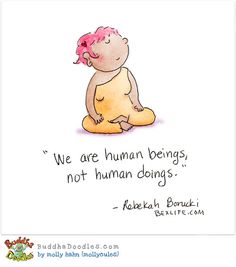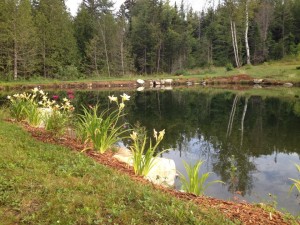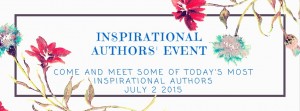Many of you who have read my book (At Home on the Kazakh Steppe) will know that it ends with this paragraph (I don’t think I’m giving too much away here)
I’m still jumping off high dives, and hopefully will for a long time to come. But thanks to my time in Kazakhstan I wait a bit longer now, not knowing any better what lies below but at least now able to take some time to enjoy the view. To enjoy what is.
Besides that double “now” that slipped in along the way, (and bothers me more than I care to admit) the general idea has stayed with me since I first wrote it.
It resonated enough so that in that moment when I realized my nest was once again empty – my “baby” had flown – I consciously decided to stand still for a while. To stay open to what might come my way, perhaps opportunities would present themselves that I’d miss if I were busy bustling about into something new: trying on, attempting, starting, jumping. This memoir had consumed me for seven years. It was time to try on “being” rather than “doing.”

True I’d taken a few breaks and written the companion children’s book, Grandma Goes to Kazakhstan, but that was only while my memoir was out at an early editor getting cut down to proper size.
I had a daily routine that involved writing, editing, and rewriting, or reading about writing, editing, and rewriting. Suddenly (and suddenly is just how it seemed) I was no longer doing that. What to do?
I chose to do nothing. That didn’t mean watching TV and eating Cheese-Doodles. It meant not committing to a new project until I was certain it was the project for me.

That is how my life has gone for nearly a year. In that year, I’ve graduated from my second Gestalt training program, but haven’t begun a new private practice. I’ve maintained my blog, but haven’t done much more writing than that. I’ve jotted down numerous ideas for new projects, but haven’t begun any of them. (We’re talking publications here, not gardens).
I’ve stayed open.
- Open to meeting new people.
- Open to ideas.
- Open to experiments.
- Open to not knowing.
Ah, that last one was troublesome. That’s not always the most comfortable place to be, “not knowing.” I like knowing. I like planning (you know that from the book no doubt). I like having a sense of the big picture.
And life goes on anyway. Even when I don’t know.
Imagine that.

Here are a few items that have fallen into my lap of late, while I’ve been up there on that high dive, just casually looking around, not knowing, but enjoying the view.
I kept hearing about those short-term EBook promotions where you reduce the price of your book. (See my blog post on doing this last week). This didn’t take too much energy, but it did take $208, which came directly from my book’s earnings to date. I’ll post the results next week.
Even better, here are a few things that have fallen into my lap recently.
In the past year, I have been invited to speak
- at five Peace Corps recruiting talks
- at three libraries
- at four bookstores
- on a one-day “Inspirational Authors” Facebook event on July 2
- on a panel discussing “creating strong women’s voice” at a writer’s conference in Los Angeles next March
- at a Sci-Phi gathering in Virginia – twice (This is not a typo; it helps to see Sci-Phi written out: short for Science and Philosophy)
- at the Kazakhstan Embassy in Washington DC in early July, for a “book launch party and discussion” and celebration of Astana Day. I know little more than that at the moment. But I’m buying a new dress.
And, last but not least, just a week ago, I got word that my book had won The Moritz Thomsen Peace Corps Experience Award (Here’s what they say about it)
THE PEACE CORPS EXPERIENCE AWARD was initiated in 1992. It is presented annually to a Peace Corps Volunteer or staff member, past or present for the best depiction of life in the Peace Corps. It can be a personal essay, story, novella, poem, letter, cartoon, song or memoir. The subject matter can be any aspect of the Peace Corps experience — daily life, assignment, travel, host country nationals, other Volunteers, readjustment.
In 1997, this award was renamed to honor Moritz Thomsen (Ecuador 1965–67) whose Living Poor has been widely cited as an outstanding telling of the essence of the Peace Corps experience.
Since 1992, it has been awarded for one poem, 15 essays, and seven (including mine) books. It is not always given, so I feel particularly honored and very, very grateful to have my book recognized in such a manner.
Except for the eBook promotion I’m in the middle of this week, I haven’t done anything in particular to bring these good things about. I’m just standing here in Vermont, tending my gardens, talking to my dog, playing with my hubs, singing in my choir, saying what’s on my mind, withdrawing from places (and people) that don’t bring me satisfaction, engaging with like-minded souls in social media, and in general pleased with my life in a way I don’t think I ever have been before.
And life seems to be well pleased with me.

I will admit to one detour caused by all those little typos screaming to have me come make it all better. Fix it. Cure it. Control it. I let their rantings take control and dove in to edit the book, yet again.
Sure, fine, it is a stronger book. But, my final editor knew it would be a year ago, before the First Edition went public.
“It would benefit from one more pass,” she had said. But I was eager to jump. And I did.
“It’s good enough,” I hollered back, as I fell into the pool below.
Live and learn.
I’m back on an even keel again. My serenity is back. And I’m eager to begin exploring the vast and entertaining world of cultural differences once again, while I continue to pay attention to what the universe is trying to tell me.
How about you? How do you know what you are meant to do?


Janet Givens
Have I fixed the Comment glitch? I think I have. Thanks, Merril and Ian for calling it my attention. Ian, I’d love to shared the comments you sent to my email especiallly that great poem. May I?
Sharon Lippincott
Janet, leave that double now alone. It works. It works so well I had to read the paragraph three times to find it. Now, fret over something else — unless you edited that extra word out. 😉
I love your image of floating along on life. I see you riding an air mattress raft along a gently flowing stream, waving at those cheering you on.
I’m deep in the middle of a volume of dialogue tips for memoir writers. We’re the neglected step-child or something like that. Current books are for fiction. Mostly they work well, but given our limited POV and the requirement to remain authentic to our ready-made characters, much of our dialogue must be with self, and we can’t reshape characters to make their dialogue more interesting.
That self-talk stuff, and making dialogue dynamic without compromising integrity does pose a few challenges. As I recall (and I’ll be looking again soon), you rose to the challenge. Stay tuned!
The project won’t proceed as rapidly as it might, because I’m also preparing to move … which is filling time gaps in the other? Who knows? All is as it is.
Do you have extra room on that raft?
Janet Givens
Oh Sharon, indeed I do. I love your image. Many years ago, when I was struggling to find a concept of “higher power” that I could live with, I happened upon the idea of floating on my back in the ocean (which I’ve done often and love it). I’d lean back, stare at the sky, and let the waves take me where they wanted. My problem, I recall saying at the time, was that I kept picking up my head to see where I was and as anyone who likes to float knows, once we pick up our head, we’re sunk (metaphorically anyway). So, I like the addition of the raft. Thanks for that.
And thanks for the reminder, “all is as it is.”
Janet Givens
Yes, Sharon . You’ve called attention to an important challenge for us memoirists — maneuvering that fine line between telling an authentic story (it isn’t fiction, after all) and telling an interesting story. Dialogue is where this often falls. I’m eager to read what you’re putting together. Let us know when it’s ready to debut.
Janet Givens
My friend and freqent Commenter here, Ian Mathie, got caught up in the blogging glitch earlier this morning and wrote me an email with his thoughts. He ended with the following, that I really wanted to share. It fits in so nicely. Here’s Ian:
Taking time to pause and just look is often as valuable as forging ahead like a bulldozer.
The poet William Henry Davis encapsulated this idea nicely in just twelve lines that have echoed round the world:
What is this life if, full of care,
We have no time to stand and stare.
No time to stand beneath the boughs
And stare as long as sheep or cows.
No time to see, when woods we pass,
Where squirrels hide their nuts in grass.
No time to see, in broad daylight,
Streams full of stars, like skies at night.
No time to turn at Beauty’s glance,
And watch her feet, how they can dance.
No time to wait till her mouth can
Enrich the smile her eyes began.
A poor life this if, full of care,
We have no time to stand and stare.
Joan Z. Rough
Janet, I wanted to say a lot in response to your post, but your friend, Ian, and poet, William Henrry Davis, have said it all in a most wise and magnificent way. Take heed!
Janet Givens
Hi Joan. Thank you. …
A poor life this if, full of care, We have no time to stand and stare.
Janet Givens
Ian posted his Comment to my email and I forwarded his final words (with poem) early on. Now, as I reread, I realize he’s made a marvelouos observation about the specific cultural differences that we have in this country.
Here’s Ian:
The first time I went to the USA, many, many years ago, I met lots of lovely people but found most of them were trying so hard to ‘find themselves’ that they never appreciated who they already were. They were, you’ve guessed it, Californians, many of whom had grown up through the Hippy years and dabbled with all sorts of esoteric ideas, whilst drifting from one slightly pointless activity to another.
Later on, in the late 70s I came again, to Texas, this time, and met a lot of energetic business people and some very clever engineers and agriculturalists. They worked hard and they played hard, and there was substance to them. At the same time I got the impression that there was an unspoken culture of bullshit to which they all tipped their hats, as if trying to convince themselves of their validity as people and their place in society. It seemed to take a great deal of effort which could have been spent enjoying life much more for what it is.
OK, if you don’t like what is, then change it, but why waste time and effort trying to convince yourself that you like what is, when quite clearly you do not actually like all of it. But of course, everyone else does, or says they do, and you don’t want to be seen as divergent. That would diminish you in their eyes, or so the social thinking goes. But the Texans, I found, were difficult people to get inside and they were quite good at living on bullshit. I wondered if it had anything to do with there being so many cattle ranches in the state.
Further east, in Virginia, I still found people trying very hard to manage their personal development, following all sorts of courses that would enhance their understanding of their own personality, focus their energy so that their pursuit of ‘goals’ would be more effective, and never looking at what they really were or what actually brought them satisfaction. They did this with such intensity that the real person within was often hard to detect. Most of these were government officials who had to present the prescribed image, particularly to an alien like me.
Going further north, up towards the New England states and the Canadian border, I found people a little more relaxed. There was still an urge to conformity and patriotism, which I have since concluded is something which the US educational system inculcates very early on, but there was also an openness to free ranging ideas from outside. A willingness to pause, listen and consider things. In your blog you illustrate this beautifully by standing on the high board and just looking around, absorbing what life has to offer, instead of seeking so hard you miss seeing things that other people in other cultures take for granted.
Janet Givens
Ian, your comments reminded me of a tome I often recommend, Albion’s Seed, to anyone with an interest in this topic. The author (who escapes me at the moment) traces these striking regional differences to the settlers who first came to those regions: aristocratic England (New England), Scots/Irish (Appalachia), and so forth.
Sine
“and life goes on anyway, even when I don’t know.” – so true! It’s really a very comforting realization, isn’t it? we get so busy churning out stuff and working hard and spinning our wheels to make everything just so, and then one day we break a wrist or a child gets sick and we are stopped in our tracks, and then we realize that the world keeps turning, with or without us. Might as well sit back and relax and wait, like you say here, and let it all come to us. Glad I’ve found your blog through your comment on mine, I’ll go on and explore a bit now.